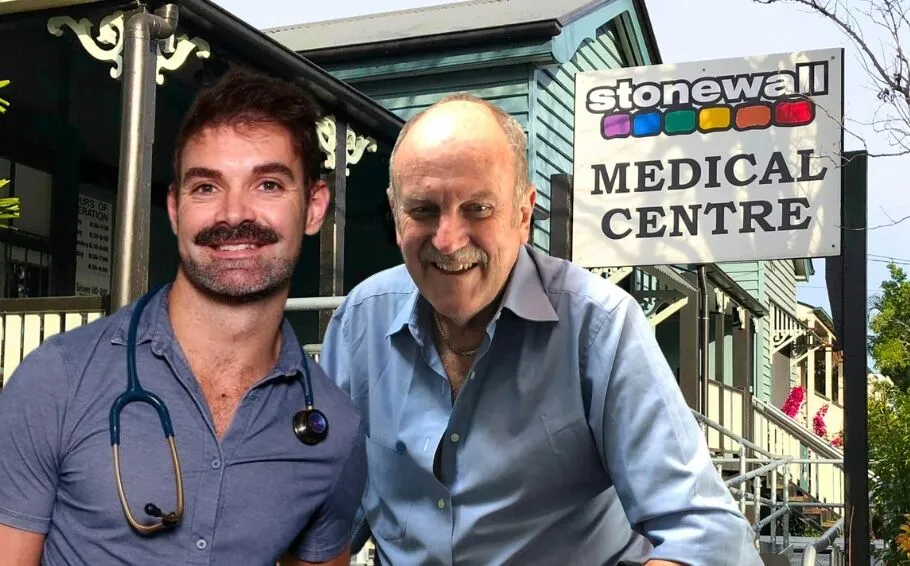In 2025, immigration remains a dynamic and complex global issue, with policies evolving rapidly, visa processes growing more intricate, and immigrants striving to adapt to new cultures while pursuing their dreams. From tightened U.S. policies to Greece’s accelerated asylum procedures, governments worldwide are reshaping how borders are crossed and who is welcomed. This article explores the latest immigration trends, visa processes, cultural adaptation strategies, and personal stories of immigrants navigating these changes. Whether you’re an aspiring immigrant, a policymaker, or simply curious, this guide offers insights, practical tips, and real-life experiences to illuminate the journey.
Visa Processes: A Complex Pathway to New Beginnings
Securing a visa is often the first hurdle for immigrants, and in 2025, the process is more scrutinized than ever. In the U.S., the June 2025 Visa Bulletin highlights significant backlogs for employment-based visas, with wait times for certain categories stretching years. For skilled workers, particularly from countries like India and China, EB-2 and EB-3 visa categories face delays due to high demand and limited quotas. The U.S. Citizenship and Immigration Services (USCIS) has also updated forms, introducing stricter checks for marriage-based green card applications to combat fraud, with processing times for Form I-90 (green card renewals) surging to over eight months in some cases.
(In Europe, Greece has implemented faster asylum processing and tougher penalties for rejected applicants, aiming to streamline returns. The European Union’s updated migration pact emphasizes quicker vetting, impacting thousands seeking refuge. For example, asylum seekers in Greece now face expedited decisions within weeks, a process that once took months. This shift aims to reduce backlogs but raises concerns about fairness and adequate review time.
Practical Tip: For visa applicants, preparation is key. Gather all required documents—passports, financial statements, and proof of ties to your home country—well in advance. Consulting an immigration attorney can help navigate complex forms and avoid delays. For asylum seekers, understanding local laws and deadlines is critical, especially in countries like Greece with accelerated processes.
“The visa process felt like running a marathon blindfolded. Every form, every interview was a test of patience, but having a lawyer helped me avoid mistakes,” says Maria, a 32-year-old nurse from Venezuela who secured an H-1B visa in the U.S. after two years of effort.
Policy Shifts: A Changing Landscape
Immigration policies in 2025 reflect a global trend toward stricter enforcement and reduced humanitarian programs. In the U.S., the Trump administration’s executive orders, such as Executive Order 14159, have expanded expedited removal, allowing deportations for those unable to prove two years of continuous U.S. presence. The revocation of Temporary Protected Status (TPS) for over 70,000 Hondurans and Nicaraguans, effective September 2025, has sparked widespread concern, with critics arguing that conditions in these countries remain unsafe.
(The U.S. has also terminated humanitarian parole programs for nationals of Cuba, Haiti, Nicaragua, and Venezuela, leaving many without legal pathways. Meanwhile, Greece’s new policies focus on rapid asylum decisions and increased deportations, with penalties for rejected asylum seekers including fines and detention. These changes aim to deter irregular migration but have drawn criticism for potential human rights violations.
Locally, some U.S. states and cities are countering federal restrictions. For example, advocacy from councilwomen in cities like Chicago and Boston has led to expanded local aid programs, filling gaps left by federal cuts. These efforts include legal clinics, housing support, and language classes, showing how grassroots movements can influence policy.
(“When TPS was revoked, I felt my world collapse. I’ve built a life here for 20 years, but now I’m fighting to stay,” shares Juan, a 45-year-old construction worker from Honduras facing deportation in 2025.
Practical Tip: Stay informed about policy changes through reputable sources like USCIS, the Department of Homeland Security, or international organizations like the UNHCR. Subscribing to immigration news alerts or joining community forums can provide real-time updates and support networks.
Challenges: Barriers to a New Life
Immigrants face numerous challenges beyond paperwork. Language barriers, discrimination, and economic instability often complicate integration. In the U.S., the surge in green card replacement wait times—up to 1,000% in some cases—has left many in legal limbo, unable to work or travel. Skilled workers, especially those on TPS, face uncertainty as employers hesitate to hire due to potential legal complications.
(In Europe, cultural differences pose significant hurdles. For instance, immigrants in Greece often struggle with societal expectations around language and customs, with limited access to integration programs. A 2023 survey by KFF/LA Times found that 60% of immigrants reported feeling isolated due to language barriers or lack of community support, a trend that persists in 2025.
(Financial strain is another obstacle. Many immigrants arrive with limited resources, facing high living costs in countries like the U.S. or Greece. For example, asylum seekers in Greece often rely on overcrowded camps, where access to jobs or education is scarce. In the U.S., the cost of legal representation—often thousands of dollars—can be prohibitive for low-income families.
“I came to Greece seeking safety, but learning the language and finding a job felt impossible at first. I felt like an outsider every day,” says Amina, a 28-year-old refugee from Syria now working as a translator.
Practical Tip: To overcome language barriers, enroll in free or low-cost language classes offered by community centers or online platforms. Networking with local immigrant communities can provide emotional and practical support, from job leads to cultural guidance.
Cultural Integration: Building a New Identity
Cultural adaptation is a deeply personal yet universal part of the immigrant experience. Immigrants often navigate a delicate balance between preserving their heritage and embracing their new home’s norms. Jacqueline Abraham, an immigration paralegal and daughter of Nigerian immigrants, highlights the importance of cultural nuance in her work. She notes that understanding clients’ backgrounds—language, traditions, and values—helps build trust and navigate legal processes effectively.
(In the U.S., immigrants contribute significantly to cultural diversity, with studies showing they drive innovation in fields like technology and the arts. Charles Hirschman’s research emphasizes that immigrants’ ambition and marginality foster creativity, with many thriving in high-risk, high-reward careers. Yet, societal pressure to assimilate can overshadow these contributions, leaving immigrants feeling caught between two worlds.
(In Greece, cultural integration is complicated by rapid policy shifts. Asylum seekers often face hostility or misunderstanding, making community engagement critical. Programs like language exchanges or cultural festivals can bridge gaps, helping immigrants feel valued. For example, Amina joined a community choir in Athens, which helped her connect with locals and build confidence in her new environment.
Practical Tip: Engage with local culture through community events, volunteering, or mentorship programs. Maintaining ties to your heritage—through food, music, or traditions—can provide emotional stability while you adapt. Be patient with yourself; cultural integration is a journey, not a race.
“I cook Nigerian jollof rice for my American friends, and they teach me about baseball. It’s a small way to share who I am while learning who they are,” says Tolu, a 30-year-old software engineer in California.
Success Stories: Resilience and Triumph
Despite challenges, many immigrants achieve remarkable success, transforming their lives and communities. Maria, the Venezuelan nurse, now works in a Texas hospital, using her H-1B visa to fill a critical shortage in healthcare. Her journey wasn’t easy—she faced rejections and financial strain—but persistence and community support helped her succeed.
In Greece, Amina’s story is equally inspiring. After fleeing Syria, she spent months in a refugee camp before securing a job as a translator. Her language skills, honed through free classes, opened doors to work with NGOs, where she now helps other refugees navigate asylum processes. Her story underscores the power of education and resilience.
In the U.S., Kilmar Abrego Garcia, a Maryland father, fights multiple court cases to remain with his family while working as a community organizer. His advocacy has inspired local policies supporting undocumented immigrants, showing how individual efforts can drive change.
(“Every rejection made me stronger. I knew I had to keep going for my daughter,” says Kilmar, reflecting on his legal battles.
Practical Tip: Seek mentorship from successful immigrants in your field. Platforms like LinkedIn or local immigrant networks can connect you with role models who offer guidance and encouragement.
Legal Guidance: Navigating the System
Understanding immigration law is crucial for success. In the U.S., policies like the OBBBA law have increased funding for detention and border walls, signaling a focus on enforcement. However, temporary increases in H-2B visas offer opportunities for seasonal workers, particularly in agriculture and tourism. Legal challenges, such as those against birthright citizenship changes, highlight the importance of staying informed.
(In Greece, asylum seekers must navigate a system prioritizing speed over depth, with legal aid often limited. Organizations like the American Immigration Lawyers Association (AILA) emphasize the need for culturally sensitive legal support to ensure fair outcomes.
(Practical Tip: Work with reputable immigration attorneys or accredited nonprofits to avoid scams. Free resources, like USCIS’s online tools or Greece’s Asylum Service website, provide reliable information. Never sign documents you don’t fully understand.
Looking Ahead: The Future of Immigration
As 2025 unfolds, immigration will remain a polarizing yet vital topic. Policies will continue to evolve, driven by political shifts and global crises. For immigrants, staying adaptable and informed is essential. Stories like Maria’s, Amina’s, and Kilmar’s show that resilience, community, and knowledge can overcome even the toughest barriers.
Whether you’re applying for a visa, adapting to a new culture, or advocating for change, the immigrant journey is one of courage and hope. By understanding policies, seeking support, and embracing both heritage and new opportunities, immigrants can build fulfilling lives in their new homes.














0 Comments